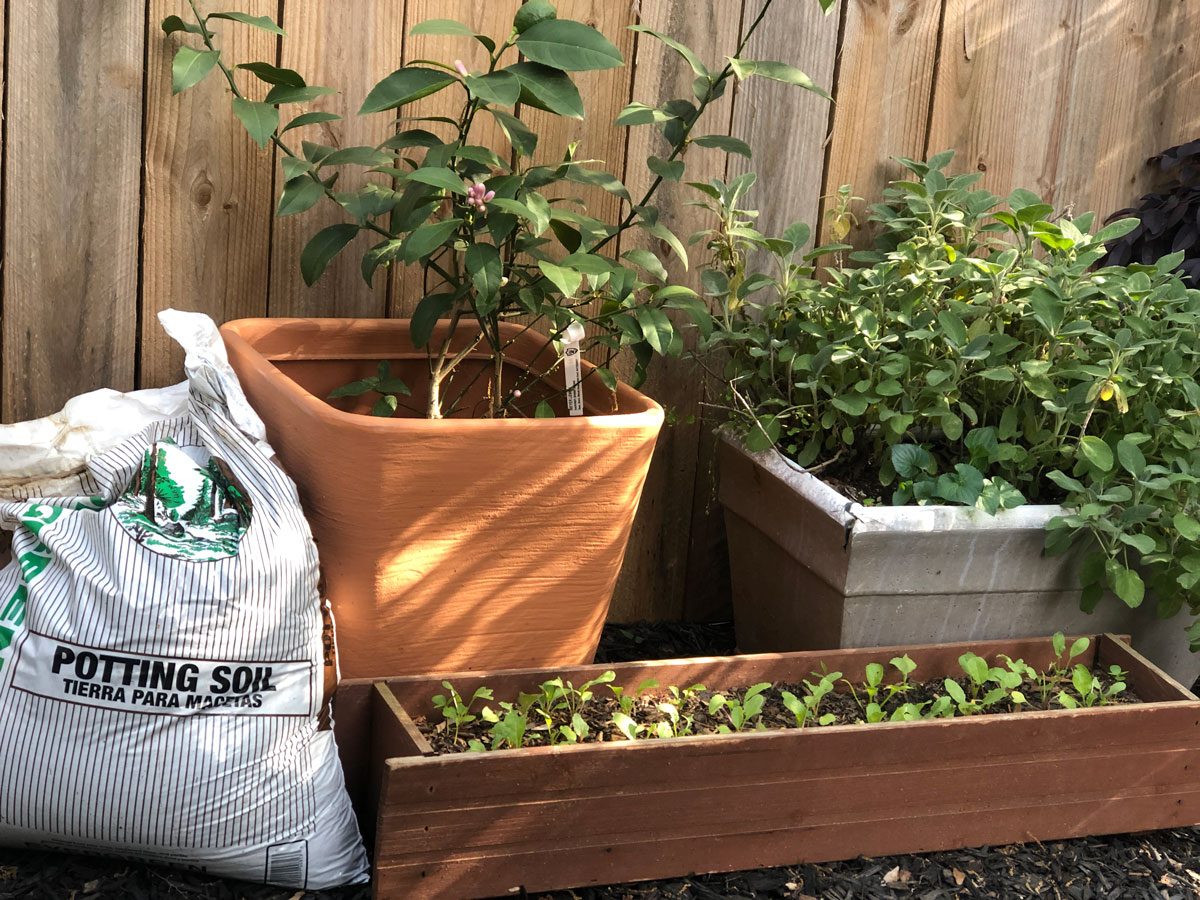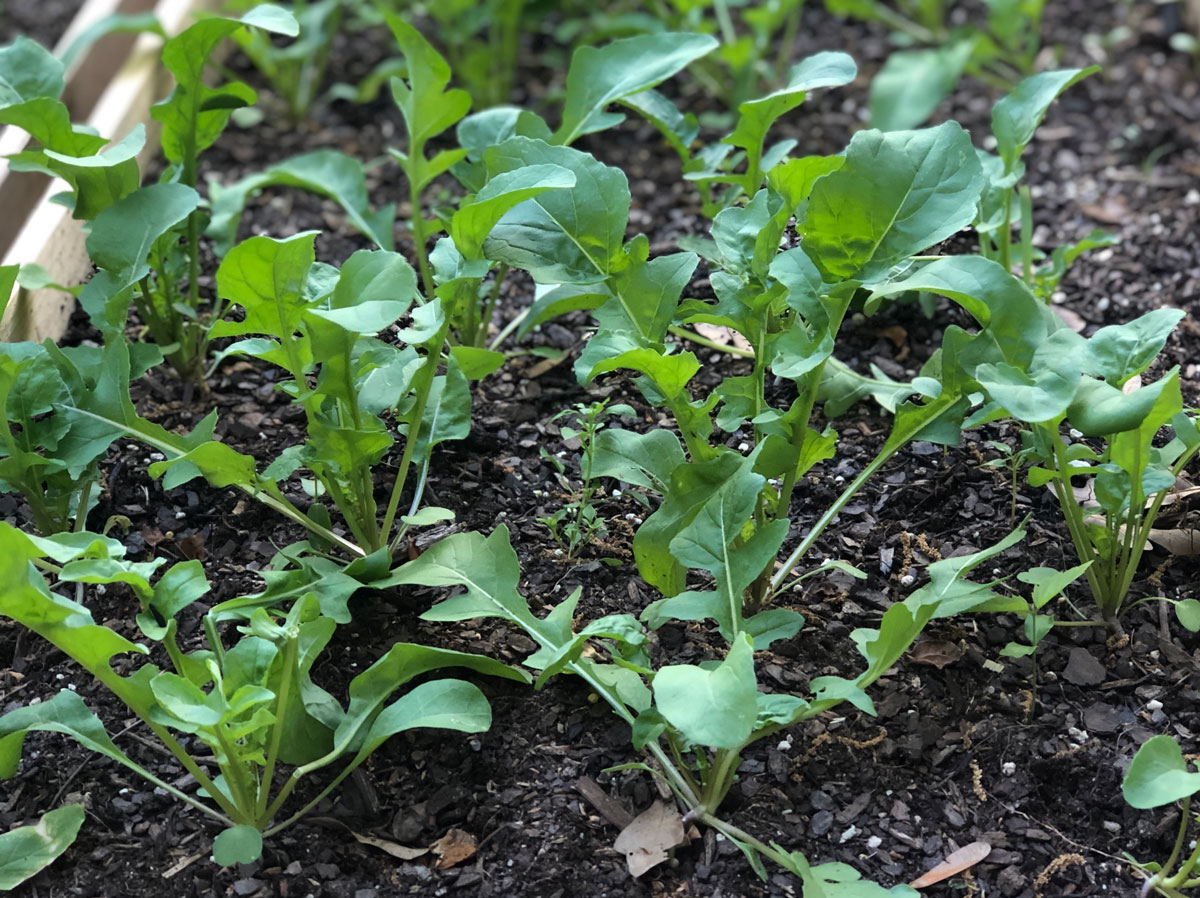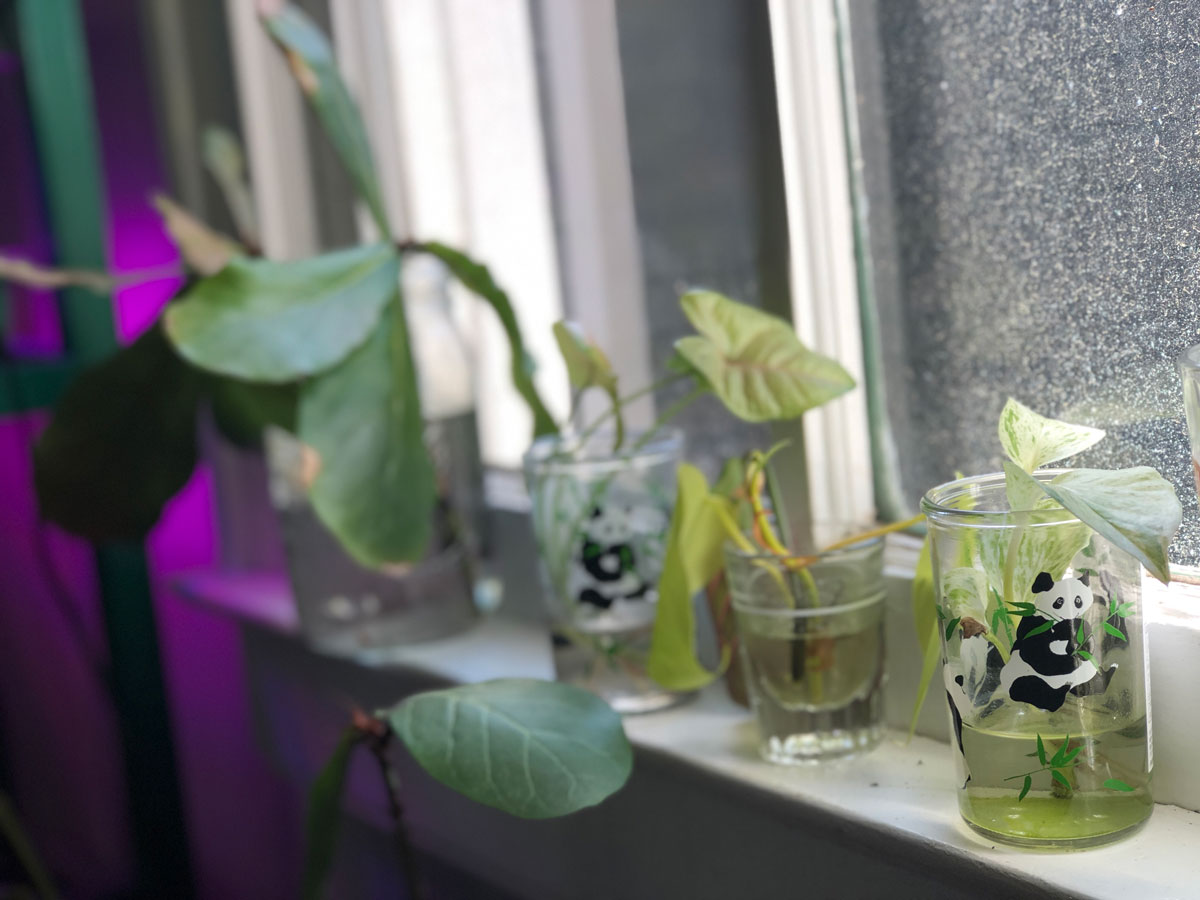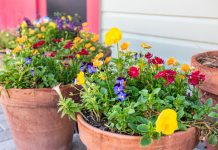
Photograph by Gray Chapman
On a Saturday in mid-March, the streets of Atlanta seemed emptier than normal—but the gravel parking lot at GardenHood, a neighborhood garden center in Grant Park, was bumping. Parents and their kids dragged wagon-loads of azaleas and trays of herbs to the cash wrap; young people stood in line with potted philodendrons and staghorn ferns on their hip. It was a bluebird morning on the cusp of the spring equinox, but it was also the last weekend Atlanta would have before large swaths of the city shut down and residents holed up inside their homes. I had to imagine all of us were there for the same reason: one last outing before hunkering down and furiously gardening our way through our own pandemic-induced anxiety and grief.
At least, that’s why I was there. Days after COVID-19 began canceling Atlanta, I dealt with my own anxiety by spending a full Saturday digging in the dirt: planting shrubs, weeding, top-dressing the soil, potting herbs. It felt restorative for a lot of reasons. It’s grounding to surround yourself with plants, which are oblivious to the headlines and obedient only to the cycles of nature. It’s also impossible to scroll Twitter while wearing gardening gloves.
Other Atlantans look to their yards, houseplants, and balconies for respite, too. Jason Parker, an Atlantan who lives in Grant Park, describes gardening and yard chores as meditative. “Gardening feels like it’s about the future,” he adds. “In two weeks, I’ll see the potatoes come up; eight more, and we can eat them. I’ve been spoiled with the luxury of being pretty sure how our lives are going to look in a year. Now, I don’t know what’ll happen at the end of the week. It’s nice to have something I can put on the calendar and look forward to.”

Photograph by Gray Chapman
With schools closed, gardening is a good way to get the entire family out of the house and away from the screens for a bit. (Parker’s four-year-old son loves helping water the plants and watching his dad pluck worms out of the compost.) It can even, depending on what you choose to grow, represent a small, sustainable source of food for your household—your own personal victory garden.
Mike Chapman of Pike Nurseries, which is currently offering curbside pickup and delivery within ten miles of each store, says they’ve seen a tremendous influx of interest from customers in recent weeks. “Our customers want to relieve stress in their yards,” Chapman says. “They know they can’t get out and do public activities, but they do know they can be in their garden.”
And no, you don’t need to run to the Lowe’s garden center to reap the benefits. “It’s not about thinking, ‘I need to go get things,’” says Halley Beagle, nursery manager at GardenHood. “It’s about turning inward and looking at what you have, and how you can improve it.” (After experimenting with opening the shop by appointment only, GardenHood temporarily closed its doors a few weeks ago to comply with shelter in place orders.)
Whether you live on an acre or in a tenth-floor studio apartment, you can find a way to nurture plants. I asked Beagle and Chapman to share a few ideas for folks who might benefit from the slow, steady solace in watching something grow:

Photograph by Gray Chapman
Go forth and multiply (your houseplants)
One truly amazing thing about plants is that you can simply make more of them without much effort at all. Common houseplants, from monstera to aloe, are easy to propagate—in most cases, all you need is a cup of water or dirt, a piece of the original plant, and a few weeks to let new roots grow. “Pothos is the king of propagation,” says Beagle. “They’re so easy. And it happens really quickly, so it’s a good instant gratification kind of turnaround.” Succulents, she adds, are especially rewarding and low-maintenance. “You just put them in rocks, or dry soil . . . I mean, I leave them on my counter and they sprout. They don’t need a lot, and it’s a pretty quick turnaround, too.”

Photograph by Gray Chapman
Experiment with seeds
Seeds are inexpensive and can often be found at garden centers, hardware stores like Ace, and online (and, if you have friends or neighbors into gardening, they’ll almost always share their stash—just ask). “With kids, starting seeds inside is always a fun activity,” says Beagle. “By the time it gets warm enough to plant things in the ground, you’ve got your seeds going, and it’s a fun family activity.” Check a planting calendar to see what seeds to start when. Can’t get ahold of any? Try some of those dried beans hanging out in the cupboard—beans grow insanely fast, and even if they don’t produce, it’s still rewarding to watch them grow. And you don’t even need gardening supplies to do it. “You can put them in between two wet paper towels, stick it in a sealed plastic Ziplock bag and put it in a window, and they’ll just sprout in the bag,” says Beagle.
Cultivate herbs
Herbs grow quickly, can thrive on a windowsill or sunny kitchen counter, and have real, practical use in the kitchen. Beagle recommends starting out with broader-leaved herbs like basil, parsley, mint, and cilantro: “Those are going to be a little bit more forgiving in different light conditions.” Plus, having a couple pots of fresh herbs on-hand means one less reason to brave the grocery store.
Try a victory (container) garden
“There have been many times that we as citizens have planted victory gardens to help sustain us,” says Chapman. “At one point there were 20 million of them, and those provided about 40-50 percent of the fruits and vegetables eaten in the U.S.” Customers’ interest in edible plants, from tomatoes to fruit trees, has skyrocketed in recent weeks—but just because you don’t have the outdoor space for five raised beds doesn’t mean you can’t enjoy the fruits of gardening labor. Tomatoes, peppers, and even blueberries thrive in pots. Since certain climbing plants (like pole beans) grow up rather than out, they don’t take up much floor space on a tiny patio. And a little windowbox perched over a balcony’s ledge makes a perfect home for those culinary herbs.
Share (safely) with neighbors
In the past few weeks, I’ve gotten texts from neighbors digging up overgrown parsley from their yard and offering to share the extras. Another dropped a Ziplock bag of flower seeds on my porch. I snuck some pole beans into a friend’s mailbox recently. Beagle has been tackling a big patch of mountain mint in her yard and putting the extras out for whoever wants it. Whether it’s seeds, divided plants, or that propagated monstera cutting, there’s something genuinely uplifting and wholesome about sharing your efforts with friends and neighbors. I think, in fact, it’s little, thoughtful gestures like these that will help us all get through this.














